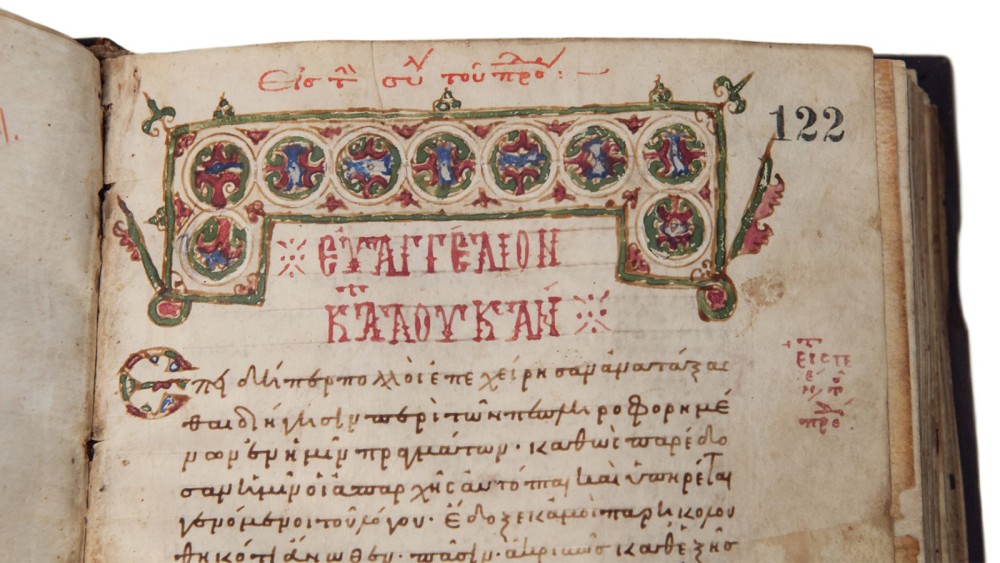Museum of the Bible returns stolen Gospels manuscript
The museum is investigating the origins of 3,000 artifacts in its collection.

The Museum of the Bible is returning a medieval New Testament manuscript to the University of Athens after learning the document had been stolen from the Greek institution.
One year ago the Green family—owners of the craft store chain Hobby Lobby and principal sponsors of the museum, which opened in November in Washington, D.C.—agreed to pay a $3 million fine for illegally importing artifacts from Iraq. The Greek manuscript of the four Gospels dating to the 1100s is currently on display through an agreement with the University of Athens and will be formally returned on October 1.
The return of the New Testament manuscript follows an investigation the museum is conducting on the origins of more than 3,000 items in its collection. Sending the Gospels manuscript back to Athens would be “the first return of an artifact because of a provenance issue,” said Michelle Farmer, a spokeswoman.




